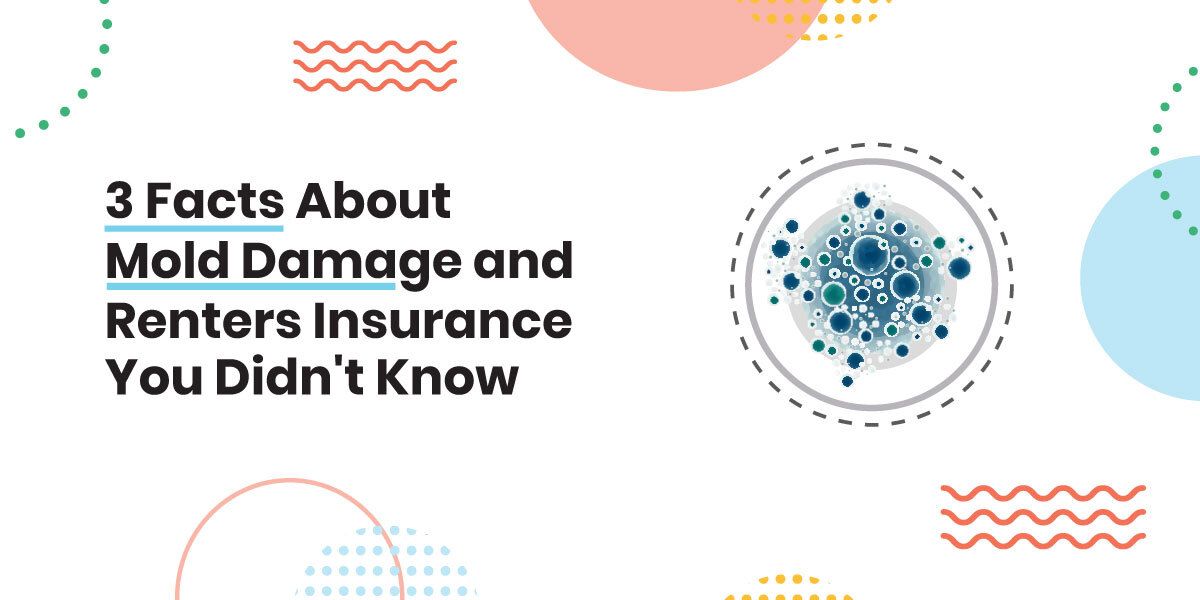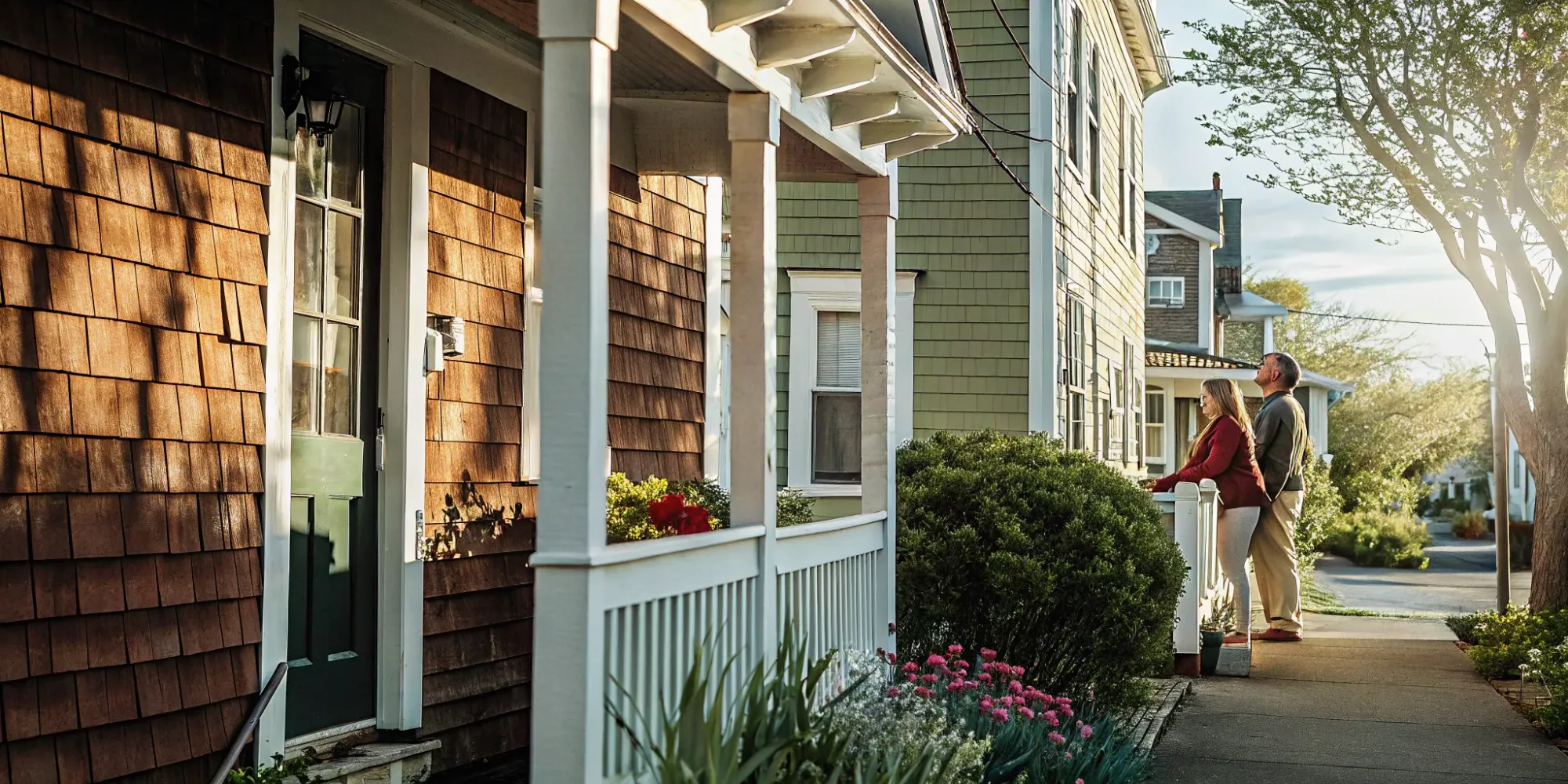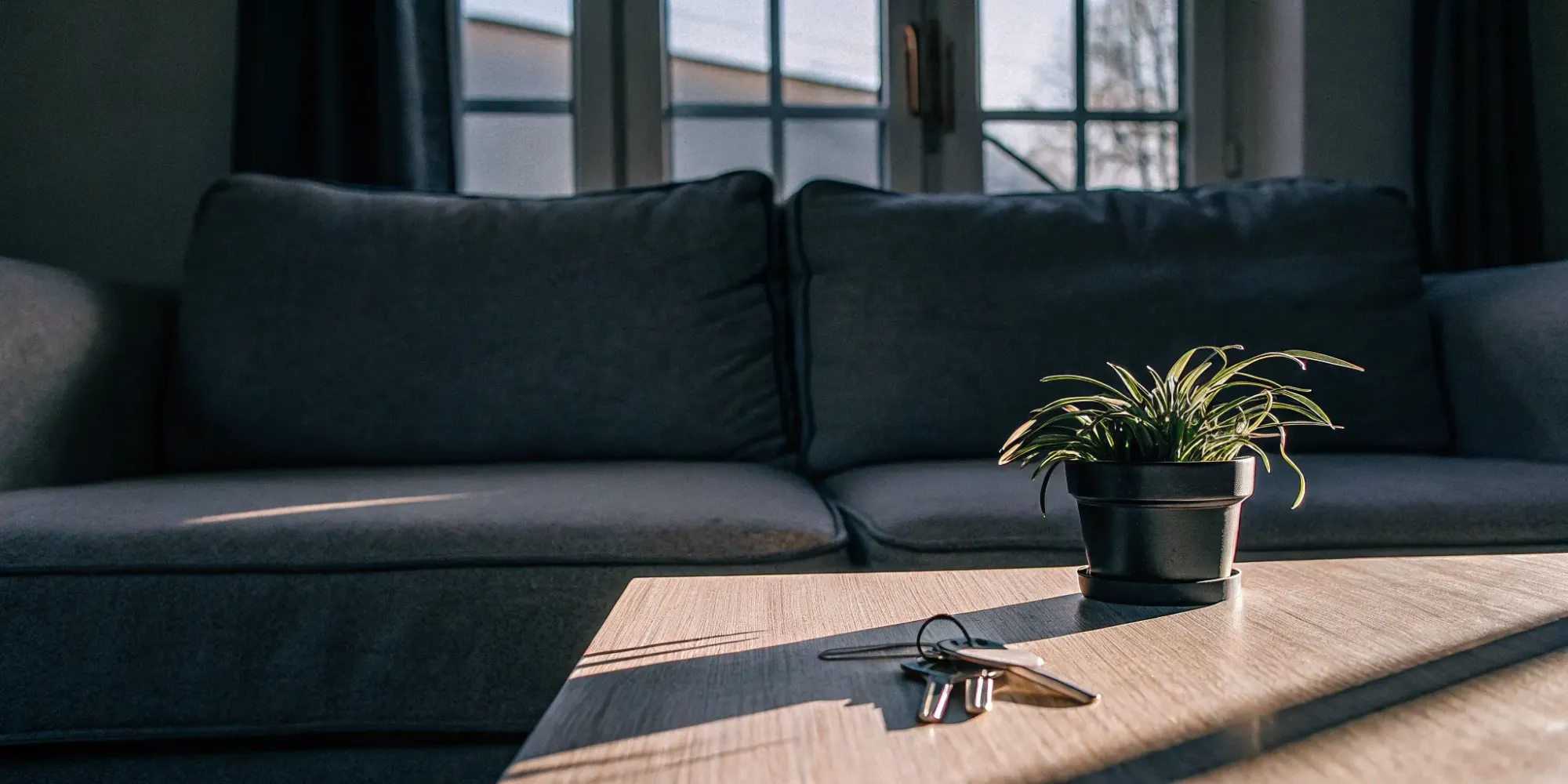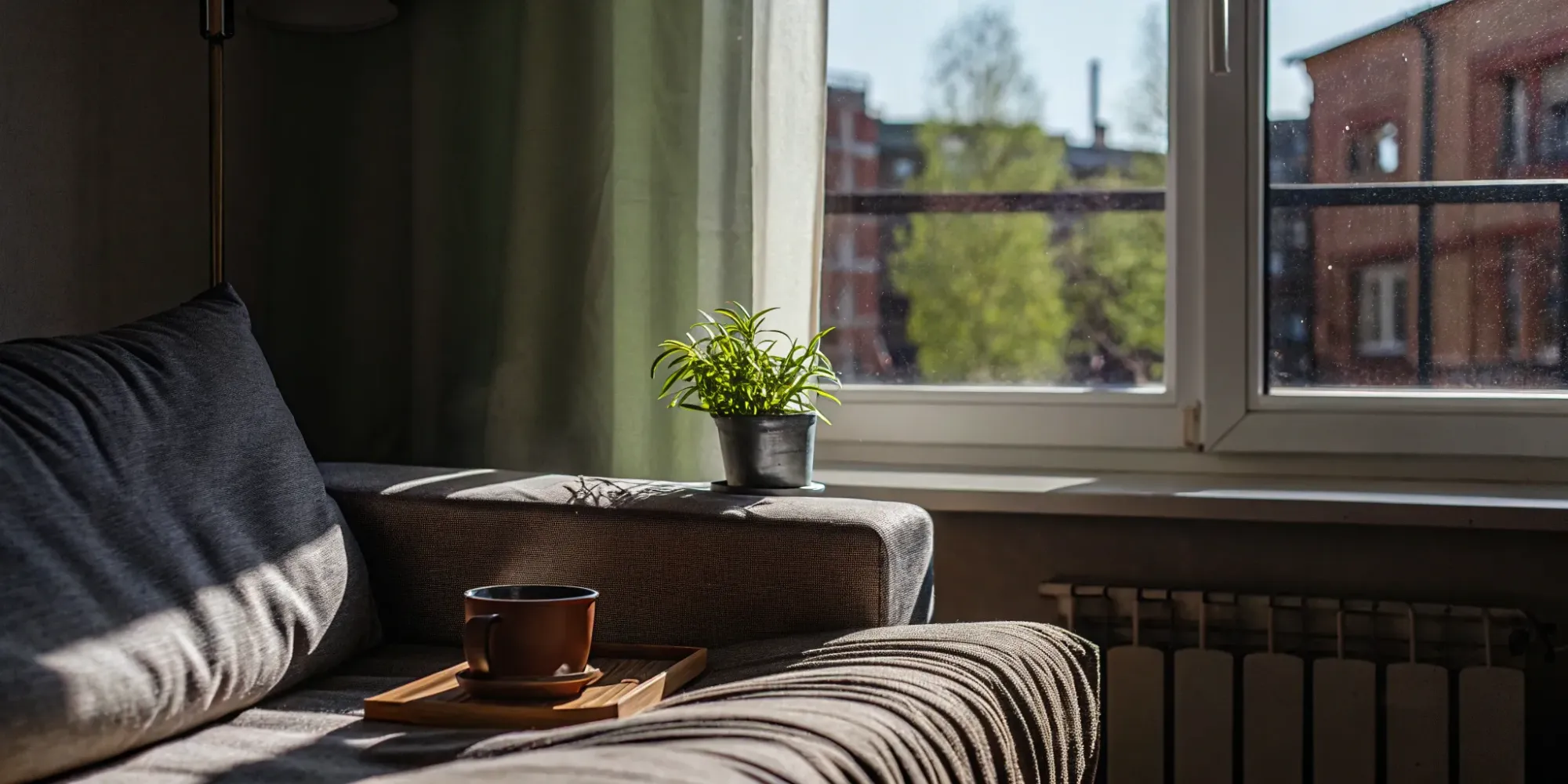3 Facts You Didn't Know About Mold Damage and Renters Insurance
15 Jul 2022 • 5 min read

Mold infestation is something no one wants to have in a rental property. According to the Centers for Disease Control and Prevention (CDC), mold can cause severe breathing problems in people with chronic respiratory diseases.
Many insurers won't consider any mold a covered peril or replace anything damaged by it. But since we developed Goodcover insurance with Members in mind, we prefer to treat you the way we'd like to be treated.
For example, one Goodcover Member had an insurance claim that mold had gotten into her couch cushions due to water damage in her home. Most policies from other insurers wouldn’t have helped her. Since Goodcover approaches this problem from a Member's perspective, she was able to get money to buy a new couch.
Such services can be a huge money saver and the difference between a smooth experience and a bumpy one.
Whether you’ve had an insurance policy for years or you've never thought about having one, here are three facts about renters insurance and mold coverage you might not have known:
1. Renters Insurance Policy Covers Extra Living Expenses if You Have To Move Due to Mold Temporarily
2. There’s a Limit to Your Renters Insurance Coverage for Mold Damage
3. Renters Insurance Doesn’t Cover Pre-Existing Mold
How To File an Insurance Claim For Mold Damage
Get Your Renters Insurance’s Mold Damage Coverage Sorted Out With Goodcover
1. A Renters Insurance Policy Covers Extra Living Expenses if You Have To Move
Goodcover renters insurance policy will cover extra living expenses when you can't live comfortably in your home due to a covered mold loss. We’ll pay for your stay in another rental unit or a hotel room until the mold is treated.
While some insurance policies will include temporary housing coverage, others won’t. This extra coverage is often under-appreciated, so we usually bundle it with property coverage for you.
Since insurance companies don't pay out unjustified claims, your temporary housing coverage might have some restrictions.
Goodcover needs a mold remediation company's report to determine if you should move out or stay in your house when remediators work on the mold damage.
You may remain in your home if the remediators believe only a small area of your house is affected, and they can work around you. But if they say you have to leave for a few days, that'll be the maximum hotel stay you can claim. And there will be limits on the amount you can spend per night, week, or month.
Along with the temporary housing coverage, we’ll also pay for remediation and necessary testing or monitoring of air to confirm the presence or absence of mold, fungi, other microbes, or rot.
2. There’s a Limit to Your Renters Insurance Coverage for Mold Damage
Since mold can be destructive, most companies exclude mold insurance claims entirely. But those who offer it may have limitations to the coverage. For Goodcover, mold and fungi coverage is capped, no matter how much coverage you have for personal property or liability. The exact amount of coverage applied for mold varies by state. It's important to thoroughly understand your policy, so if you'd like to know about Goodcover's specific coverage in your state, reach out to our Member Experience team.
Goodcover also has some exclusions when it comes to mold coverage. For example, suppose we can trace your mold damage back to external flooding. In that case, we won't compensate you since a flood insurance policy from the National Flood Insurance Program should cover that.
You also won't be covered if the mold grows due to negligence — a problem you or your landlord should have addressed but you didn't.
For instance, leaving your shower to air dry with humid weather conditions can breed mold. You can trace the damage back to the water, but insurers may see your unwillingness to dry your shower’s hard surfaces as negligence.
You’ll have to show that you've attempted to mitigate the damages before the insurance company pays your claim. After all, renters insurance will only cover you up to the point where you could have prevented the mold growth from worsening.
3. Renters Insurance Doesn’t Cover Pre-Existing Mold
If you find mold in an apartment and it's been there possibly even before you moved in, it's the landlord's responsibility to remedy it. Renters insurance only covers your personal belongings, so the landlord's insurance should cover mold caused by structural flaws, such as burst pipes.
However, if the mold damages something you own due to previously covered water damage, the renters insurance company will pay to repair or replace your belongings since it's a covered peril.
While the laws vary in different states, the landlord has a legal obligation to provide safe and habitable housing. If your landlord fails to address a serious mold problem, you can remedy the issue yourself and deduct the expense from your rent payment or legally withhold the rent.
You can even demand compensation for mold-related health issues, including your relocation costs if the mold poses a health risk. If you decide to sue your landlord, make sure you get legal advice to confirm you have a solid case.
Since mold is a complicated topic for renters insurance, it's best to work with your insurance agent and landlord as soon as you see a problem that could lead to mold damage when you move into a new apartment.
How To File an Insurance Claim For Mold Damage
Here's a checklist you can use if you need to make a claim:
- Take pictures — Renters insurance companies love pictures. They're usually the best way to prove mold damage. Be sure to take the photos before cleaning up, fixing anything, or moving stuff.
- Keep all documents and receipts in proper condition — That'll make filing your claim pretty simple. The insurance company will be able to review your claim and the receipts to determine your reimbursement.
- Write a statement of the mold damage before you notify the insurance company — Talking to claims handlers can be intimidating since they'll ask precise questions about what happened. So writing in advance can help.
- Get follow-up details once you’ve notified the insurance company of your claim — Make sure you have your claim number, contact's name, how to contact them, and when you can expect their next call. Such information gives you control since you can reach out to the insurance agent instead of waiting for them to contact you if you don't hear anything.
Get Your Renters Insurance’s Mold Damage Coverage Sorted Out With Goodcover
Mold is a complicated issue in the insurance world. In most cases, renters insurance covers mold only if a named peril caused the property damage. Otherwise, they won't reimburse you.
With Goodcover, you’ll get affordable renters insurance for just a few dollars per month. We aim to build a community of members who enjoy financial security at the lowest possible cost.
Get a renters insurance quote and become a member today. We'll do the work for you if you're switching and refund any money you've already paid.
Note: This post is meant for informational purposes, insurance regulation and coverage specifics vary by location and person. Check your policy for exact coverage information.
For additional questions, reach out to us – we’re happy to help.
More stories
Dan Di Spaltro • 27 Jun 2025 • 20 min read
Renters Insurance in Rhode Island: Costs & Coverage
Dan Di Spaltro • 26 Jun 2025 • 12 min read
Nashville Renters Insurance: A Complete Guide
Dan Di Spaltro • 25 Jun 2025 • 18 min read
Iowa Renters Insurance: Cost & Coverage Explained
Dan Di Spaltro • 24 Jun 2025 • 20 min read
Best Renters Insurance in Charlotte: Find the Right Policy
Dan Di Spaltro • 20 Jun 2025 • 15 min read




